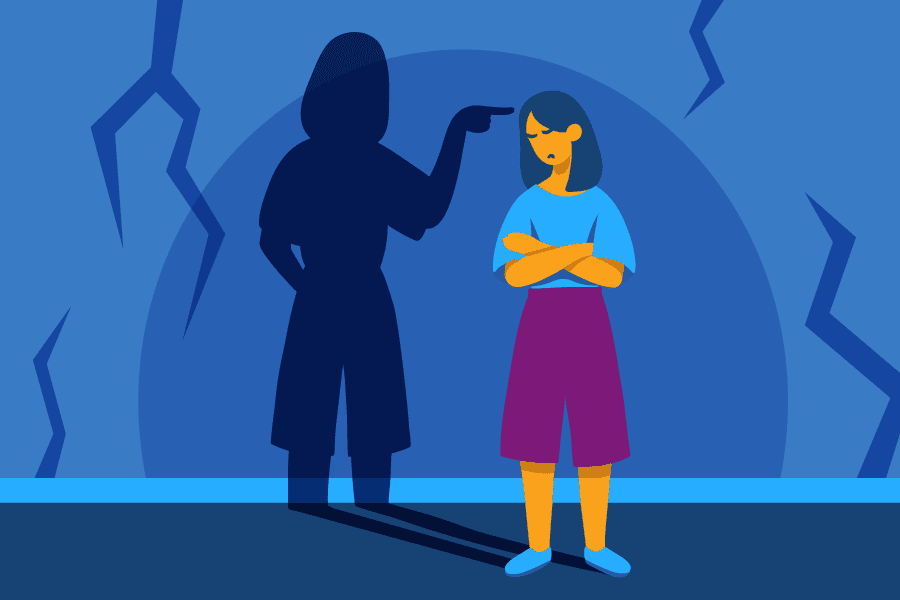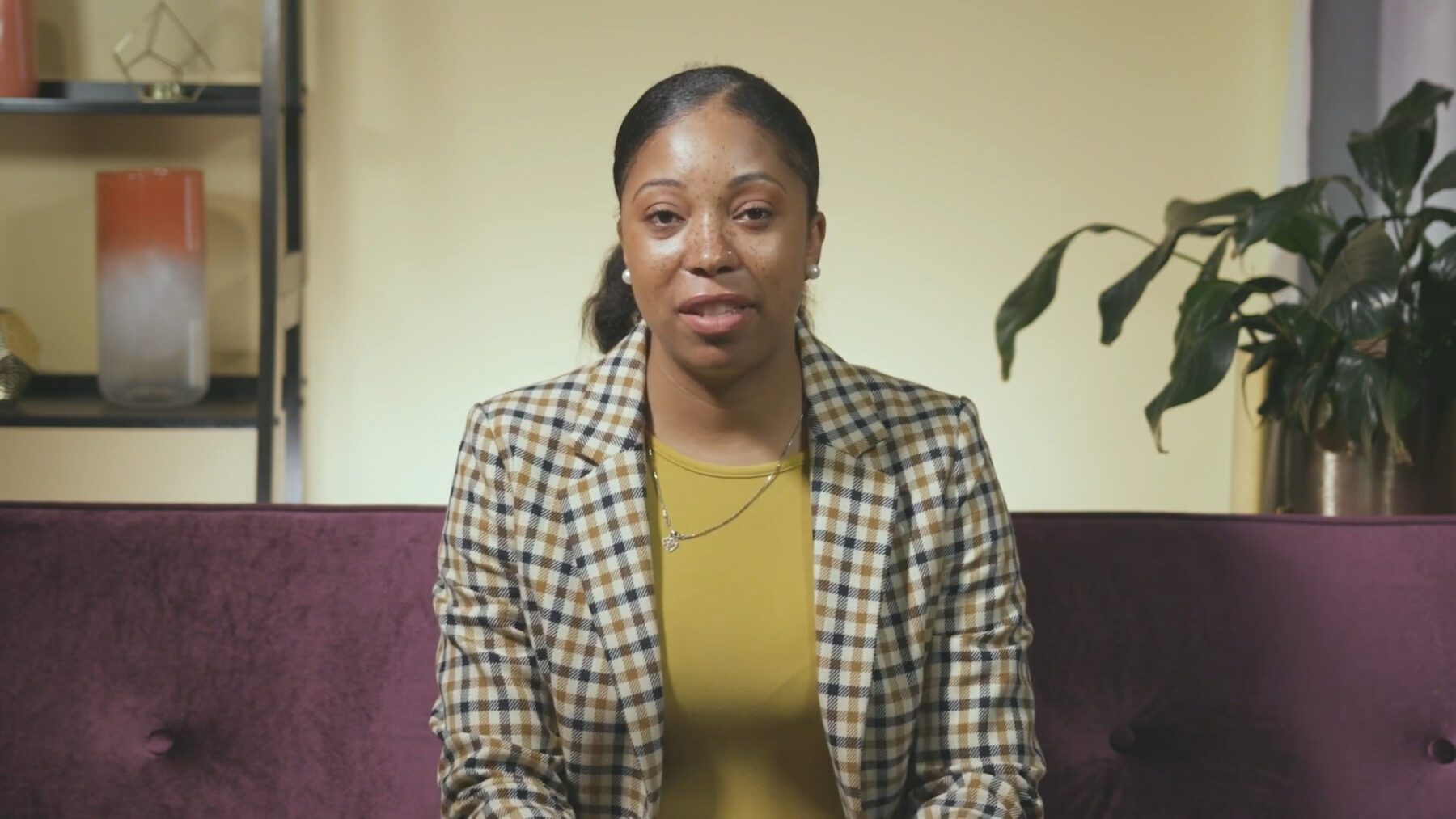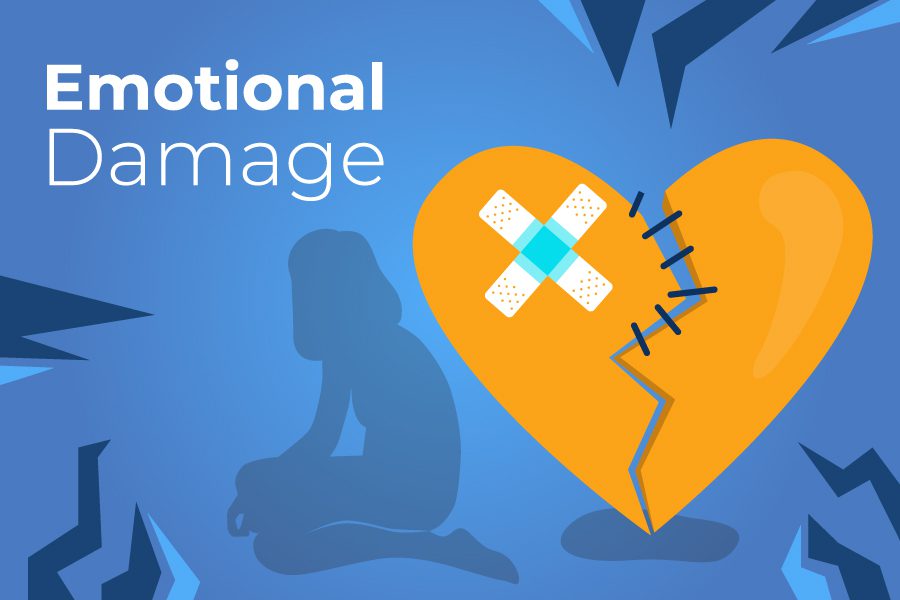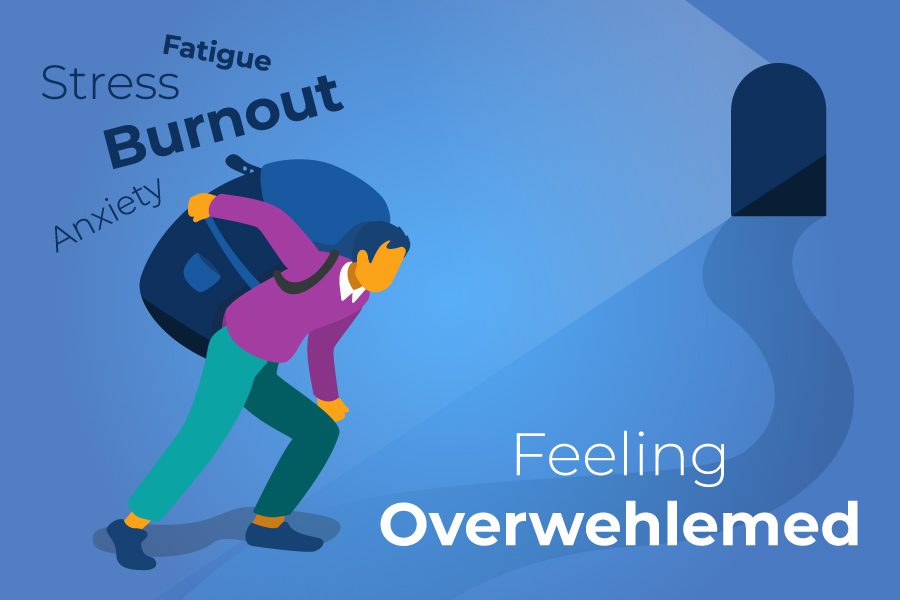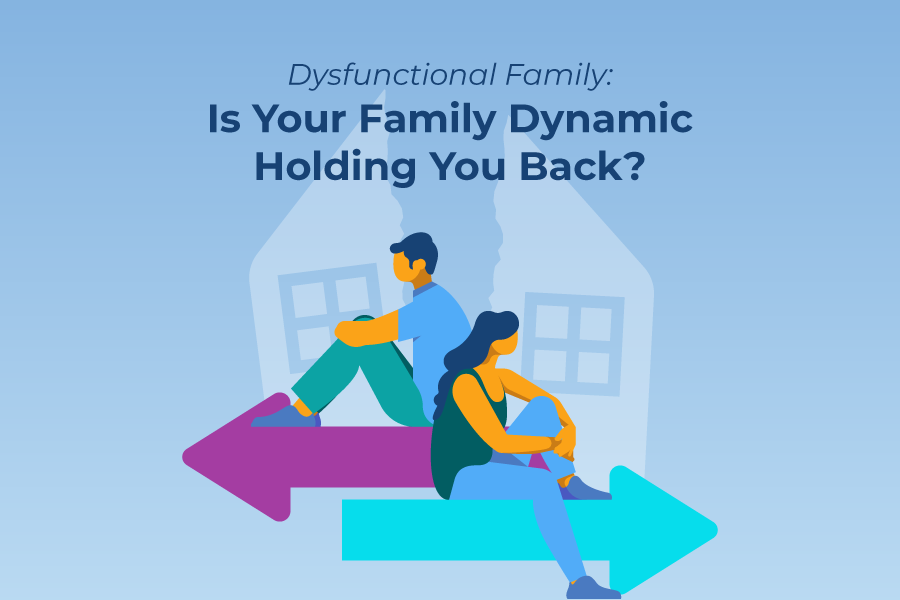Self-Hatred Overview
While it is normal to feel down about yourself from time to time, self-hatred is entirely different.
Self-hatred is more than just feeling disappointed in yourself every once in awhile.
You might harshly criticize the way that you look, act, and feel on a day-to-day basis, or you may find yourself wishing that you were someone else.
It can feel like no matter what you do, it’s never good enough.
These thoughts can take over your entire self-image, making it hard to see your own value or believe you deserve kindness—from yourself or others.
If you’re feeling this way, you’re not alone, and it’s okay to ask for help.
You may not feel like you deserve kindness or healing, but these feelings don’t have to be permanent.
It’s time to stop hating yourself, and we’re right here to help.
What Is Self-Loathing?
Self-loathing is when you hold negative thoughts and beliefs that make you dislike yourself.
While self-loathing looks different for everyone, it often involves negative self-talk, feelings of guilt, poor self-image, and deep insecurities.
You might believe that you’re a bad person or that you somehow deserve the “bad things” that happen to you.
You may feel like you’re a burden to the people you love and that your friends and family would be better off without you around.
These feelings of self-hatred can lead to intense anxiety, depression, and a damaged sense of self-worth.
If left unaddressed, these feelings can also lead to thoughts of self-harm or even suicidal ideation.
Is Self-Loathing a Mental Illness?
On its own, self-loathing is not a recognized mental illness. However, it is a symptom of several mental health conditions.
For example, those with conditions like depression or bipolar personality disorder (BPD) are far more likely to experience self-loathing.
If you have found that you have self-loathing, it’s important to reach out to a mental health professional to make sure you can identify the root cause correctly.
What Are Different Words for Self-Hate?
Different words for self-hate include:
- Self-loathing
- Low self-esteem
- Self-doubt
- Shame
- Intense self-criticism
However, most of the time, when you experience feelings of self-hatred, you might not express them in clear terms. Instead, these feelings often come out through negative, harmful self-talk.
You might catch yourself saying things like, “I’m such a failure,” “I’ll never be good enough,” or “Nobody could ever love me.”
You may feel stuck in the belief that you’re unworthy, thinking, “I mess everything up,” or “I don’t deserve happiness.”
You might also focus on specific things you dislike about yourself, saying things like, “I hate my body,” or “I’m the dumbest person I know.”
While everyone feels disappointed in themselves from time to time, especially after things go wrong, if these phrases keep appearing in your thoughts or speech, it’s a sign that it’s time to reach out for help.
Is Self-Hatred a Defense Mechanism?
Yes, self-hatred can definitely act as a defense mechanism to try and protect yourself from hurt and criticism from others.
When you experience emotional pain, trauma, or rejection, you might start internalizing those feelings as a way to cope.
By blaming yourself and focusing on your flaws, it can feel like you’re “beating others to the punch,” criticizing yourself before anyone else has the chance to.
This sense of self-criticism can make you feel like you have control over the situation; if you punish yourself first, it will hurt less when others reject you.
For example, after failing at something at school or work, you might think, “I’m just not good enough,” as a way to avoid the pain of trying again and possibly failing in the future.
In relationships, if a partner leaves, you might think, “I’m unlovable, that’s why they left,” because it feels less painful than facing the uncertainty of someone choosing to leave.
These beliefs can give you a false sense of control and certainty, even though they harm your ability to live a healthy life.
Sometimes, you may even use self-deprecating humor or make negative comments about yourself to shield yourself from external criticism.
This usually stems from being teased, bullied, or judged, and it becomes a way to protect yourself from others by controlling the narrative.
For example, you might catch yourself saying things like: “Of course, I messed it up—what else is new?”
Why Do I Hate Myself?
Self-hatred often comes from past trauma, unrealistic expectations, or constant negative self-talk, but these feelings don’t define your worth, and they don’t have to define your life.
The professional help available at Sandstone Care can help you break down your self-hatred in a safe and supportive place to find your best approach to change.
What Causes Self-Hate?
Self-hate can be caused by several different experiences, including:
- Past Trauma or Abuse
- Perfectionism and Unrealistic Expectations
- Negative Self-Talk
- Rejection or Abandonment
- Comparison to Others
- Mental Health Conditions
While these are some of the most common reasons that you might begin to hate yourself, your life circumstances may give you specific triggers to make you feel inadequate.
Let’s use religious trauma as an example.
If you grew up in a strict religious setting that focused on shame, guilt, or punishment for not meeting certain spiritual standards, you might start to believe that you’re deeply flawed.
You may feel like God, or another higher power, is always disappointed in you.
This can lead to feeling that you are not “good enough,” even when you are not doing anything wrong.
Your unique experiences, especially if they are tied to trauma (such as those who suffer from survivor’s guilt), abuse, or mental health conditions can make you far more likely to hate yourself.
What Is the Root of Self-Hatred?
The reason why a person may have negative thoughts of self-hatred is a personal question. The best way to identify why you have felt self-hatred is to reach out to mental health professionals, support groups, and therapists.
Why Don’t I Think I’m Good Enough?
There are many reasons you may not feel like you are good enough, including mental health conditions, high-stress responsibilities, broken relationships, and past trauma.
These beliefs and negative thoughts are often coupled with guilt and self-blame, where a person not only believes that they are not good enough for a friendship, job, or accomplishment but are also the cause of their shortcomings.
Struggling with addictions, compulsions, or bad habits can also make you feel that you are “not worthy of love,” especially if you struggle to break free of those cycles.
Unrealistic goals can also cause these thoughts, even if they were not set up for success in the first place.
These thought patterns, negative beliefs, and self-image can also become a self-fulfilling prophecy.
You might expect yourself to have bad days or fear pushing people away, and then act in ways that make this a reality.
For example, you might isolate yourself by canceling plans, avoid trusting others by shutting down emotionally, or engage in harmful behaviors like substance use or self-harm.
These actions can stop you from forming close, supportive relationships, slow down your healing process, and keep you stuck in patterns that fuel feelings of self-hatred or unworthiness.
Is Self-Hatred a Symptom of BPD?
Yes, self-hatred is often a symptom of Borderline Personality Disorder (BPD).
People with BPD tend to experience extreme emotions, including deep feelings of shame, guilt, and self-loathing.
Self-hatred in BPD can lead to specific harmful behaviors, such as self-harm.
Some individuals may also experience frequent suicidal thoughts or attempts, often as a way to cope with overwhelming feelings of worthlessness.
This self-directed anger can be triggered by a fear of abandonment or rejection, even in situations where the fear may not be based on reality.
Someone with BPD may sabotage relationships by pushing loved ones or caregivers away or by acting out in ways that reinforce their belief that they don’t deserve love or care.
Is Self-Hatred a Symptom of ADHD?
Yes, self-hatred and self-sabotaging thought patterns and behaviors are common in those living with ADHD.
Many people with ADHD struggle with feelings of low self-worth due to difficulties with focus, impulsivity, and organization.
These challenges can lead to mistakes, missed deadlines, or struggles at work, school, or in relationships, which often attract criticism from others.
For example, people with ADHD might frequently hear:
- “You’re so lazy.”
They might internalize this as a personal flaw, when in reality, their brain struggles with motivation. - “Why can’t you ever finish anything?”
This criticism can make them feel like a failure for having difficulty completing tasks, even though ADHD has given them an uphill battle. - “You’re too irresponsible to be trusted with this.”
Being called irresponsible can lead to deep feelings of shame and guilt, and it encourages the idea that they can’t manage their own lives. - “You never listen.”
Hearing this can make them feel like they don’t care about others, even though their mind may just be easily distracted. - “You always forget everything.”
This may create a sense of worthlessness, as they feel unreliable or incompetent for not remembering things, despite trying their best.
Internalizing these types of comments can lead to feelings of self-hatred and self-doubt.
People with ADHD may start to believe these criticisms are true, which only makes their struggles more difficult as they lose confidence and ambition to accomplish what they need to do.
Is Self-Hatred a Symptom of Anxiety?
Yes. Self-hatred can be a symptom of anxiety.
Anxiety changes how your brain works, especially in areas like the amygdala, which controls your fear response, and the prefrontal cortex, which helps you think clearly.
When you’re anxious, the amygdala becomes overactive, making you feel overwhelmed by negative thoughts and emotions.
Meanwhile, the prefrontal cortex, which helps you stay calm and rational, has a harder time keeping things in perspective.
This imbalance can make small worries feel like big failures.
For example, if you make a small mistake at work, anxiety can cause your brain to blow it out of proportion, making you feel like a failure in your career.
These feelings of self-hatred aren’t a true reflection of who you are—they’re caused by how anxiety affects your brain.
Struggling with survivor’s guilt and PTSD? Sandstone Care offers compassionate, expert treatment to help you heal. Call us today or verify your insurance and start your recovery journey.
Signs of Self-Hate
Recognizing the signs of self-hatred in yourself, a family member, a friend, or a loved one is the first step toward effective treatment.
Overcoming self-loathing and self-hatred is difficult. Professional help alongside personal support is often necessary to challenge these beliefs.
How Do You Know If You Hate Yourself?
Some signs of self-hate in yourself include:
- Constant “bad days”
- Disregarding your health
- Pervasive feelings of guilt or self-blame, even in situations you were not involved in
- Negative self-image
- Intense self-criticism, even in the face of accomplishment
- Thoughts of self-harm
- Trauma dumping to try to find validation
- Negative self-talk
- Feelings of worthlessness or thoughts like you don’t “deserve” positive things in life
To see if you might be struggling with self-hatred, ask yourself questions like, “Would I criticize a friend or a stranger the way I criticize myself?” or “Why do I feel uncomfortable accepting compliments or believing that I deserve good things?”
You can also reflect on whether you often blame yourself for things beyond your control or if you feel like you’re never good enough, no matter what you do.
These kinds of questions can help you notice if you’re being overly harsh or unfair to yourself.
What Does Extremely Low Self-Esteem Look Like?
Extremely low self-esteem can look like:
- Intense self-criticism and self-blame, even when things aren’t your fault
- Ignoring or downplaying your own achievements
- Feeling pessimistic about yourself and your future
- Being overly sensitive to even small criticisms
- Withdrawing from social situations and isolating yourself
- Constantly trying to please others at your own expense
- Using self-deprecating humor as a way to put yourself down
- Avoiding challenges or goals because you’re afraid of failure
- Rejecting or feeling uncomfortable with compliments
- Constantly comparing yourself to others, especially when scrolling through social media
For example, if a work project doesn’t go as planned, you might think, “It’s all my fault,” even if others were responsible too.
After scrolling through social media, you might feel like everyone else is more successful, happier, or better looking than you are.
You may find yourself comparing your life to others’ highlight reels, thinking, “Why don’t I have what they have?” or “I’ll never measure up.”
When friends ask you to hang out, you might avoid it, convinced they don’t really want you around, even though they have said that they do.
If you have noticed these signs of extremely low self-confidence, then it may be time to reach out for professional support.
How Do You Know If Someone You Love Hates Themselves?
Some of the signs to look for in your loved one include self-deprecating language, even when used as jokes, self-isolation, unwillingness to try new things, or constant comparisons to others.
It is also common for a loved one to disregard attempts to challenge these feelings of self-hatred, even feeling that they may not “deserve” to be happy.
To support your friend without putting pressure on them, you can weave in encouragement and acknowledgment in natural conversations.
For example, instead of focusing directly on their struggles, you can say something like, “I saw how hard you worked on that project. You’re really talented at what you do.”
This lets them feel valued without diving straight into difficult emotions.
When talking to them, you can casually remind them of their positive traits by saying things like, “You always make people feel welcome, and that’s something I really admire about you.”
These comments can help them notice their strengths without feeling lectured or forced into a deep conversation right away.
It’s also important to let them know that you are always there to hear them out.
This keeps the door open for them to reach out when they feel ready, without making them feel like they need to respond right away.
Effects of Self-Hatred
Self-loathing goes beyond negative feelings. You can’t help yourself or those you love until you are able to pick up on how self-hate is impacting your lives.
What Does Self-Hatred Do to the Body?
The body can physically react to feelings of self-hatred in many ways, including muscle tension, changes in sleep, and poor eating habits.
If you struggle with self-hate you may experience tightness in your neck, shoulders, or jaw due to constant stress.
Self-hatred can also lead to unhealthy eating patterns, such as overeating for comfort or refusing food as a form of self-punishment.
Other physical symptoms might include trouble sleeping, fatigue, headaches, and even digestive issues.
How Does the Brain React to Hate?
Hate affects the brain by activating areas like the amygdala, which processes strong emotions like anger and fear, and the insular cortex, which generates feelings of disgust.
When these areas light up, your body reacts by releasing stress hormones like cortisol and adrenaline, preparing you to fight or escape the situation.
This can happen even over small things.
When this hate is directed inward as self-hate, the brain responds in a similar way.
The amygdala triggers intense emotions like anger and frustration, but instead of being aimed at someone else, it’s aimed at yourself.
The insular cortex can make you feel disgusted with yourself, leading to harsh self-criticism or feelings of unworthiness.
This self hate causes the same physical responses as hate for someone else. Stress hormones flood your system, leading to a racing heart, muscle tension, and feelings of being constantly on edge.
For example, when you make a mistake or feel like you’ve failed, your brain may react as if you’re facing a real threat, even though the “danger” comes from within.
Over time, the effects of chronic self-hate can lead to ongoing stress, sleep problems, headaches, and mental health issues like anxiety and depression.
Feeling stressed and sleep deprived can make it difficult for you to reach your goals, which can make you feel even more worthless.
What Happens If You Hate Yourself Too Much?
Hating yourself too much can seriously affect your mental and physical health and lead to a cycle that is difficult to break away from.
Mentally, constant self-criticism can lead to depression, where you feel hopeless, or anxiety, where you worry you’re never good enough.
You might start believing you don’t deserve happiness or success, which can stop you from achieving your goals or accepting help from others.
Physically, the stress from self-hatred causes your body to release hormones like cortisol, which can lead to fatigue, headaches, trouble sleeping, and even weaken your immune system.
You might neglect self-care, overeat for comfort, or starve as a way of punishing yourself.
Self-hatred also affects relationships.
You may avoid friends and family, thinking they don’t really want you around. This isolation can make you feel lonelier, which worsens the cycle of self-hatred.
How to Stop Hating Yourself
Overcoming self-hatred is challenging. Professional help is often necessary to address the effects of self-hatred and the negative beliefs that can be deeply harbored.
The professionals at Sandstone Care are prepared to help you challenge these negative thoughts and beliefs for a healthy and effective way of exploring self-compassion and healing from self-hatred.
How Do You Stop Feeling Like You Hate Yourself?
It is important to start with small steps to address self-hate.
Many feelings of self-loathing and self-hatred can be deeply embedded in a person’s brain, and simply “getting over it” is often an unhealthy and unrealistic way of approaching the situation.
Small steps like incorporating positive self-talk are crucial. This can feel uncomfortable at first, but saying something positive about yourself can help to normalize the idea that positivity is possible.
Likewise, using journals can be a great way to engage in positive self-talk in a private environment. These can also be used to help record and expel negative thoughts, empowering you to see these negative thoughts in a new way.
Being willing to accept compliments, even if you do not feel like you have earned them, is another way of beginning to challenge self-hatred.
However, these are just the beginning of possible strategies to address self-hatred. Professional help from mental health professionals is always the best way to explore more personalized strategies for your healing journey. At Sandstone Care, personalized treatment is always available, combining these small steps with proven therapies like cognitive-behavioral therapy (CBT), individual and group therapy programs, experiential therapy, and much more for a comprehensive way of challenging self-hatred.
How Can Good Self-Esteem Help You Through Difficult Situations?
Positive self-esteem can be crucial for navigating stressful situations in your personal life or professional ambitions.
Self-esteem can help you approach a problem with more confidence and clearer decision-making, improved emotional resilience in the face of stress, and even improved communication to help work with others to complete a goal.
Negative self-esteem can make each of these aspects more challenging and can even lead to feelings of defeat, worthlessness, or hopelessness in the face of stress, furthering feelings of self-loathing.
How Do You Practice Self-Love When You Hate Yourself?
Practicing self-love while experiencing feelings of self-hatred is complicated, and it is normal to feel uncomfortable when first exploring these practices.
However, forcing yourself to try to engage with self-love anyway is the best way to normalize these strategies. For some, replacing negative self-talk with positive self-talk is crucial and can be necessary to see things from more than one perspective.
Creating consistent self-care routines that involve eating healthy foods and engaging in personal hobbies is also important. Working with friends, family members, loved ones, or trained professionals to set effective and realistic goals can also help you find things to appreciate about yourself and engage in self-love.
Mindfulness practices are also essential for challenging self-loathing and engaging in self-love. By identifying negative thoughts and beliefs in a safe space, you can more readily challenge them with self-love.
How to Help Someone With Low Self-Esteem?
Some ways to help someone with low self-esteem include:
- Be an active listener to their challenges
- Provide positive feedback about even small accomplishments, such as “the dishes look very clean” after they are washed.
- Help break down personal goals into small steps and achievable parts
- Get them involved in social events, outings, or personal hobbies to challenge feelings of worthlessness or self-isolation
- Engage in personal self-improvement to model effective self-care practices and efforts
Remember to also laugh with those with low self-esteem rather than at them.
Avoiding laughing at self-deprecating humor can help to challenge these thoughts, especially while coupling this with positive affirmations or compliments.
Also encourage them to seek out professional help from therapists or support groups.


